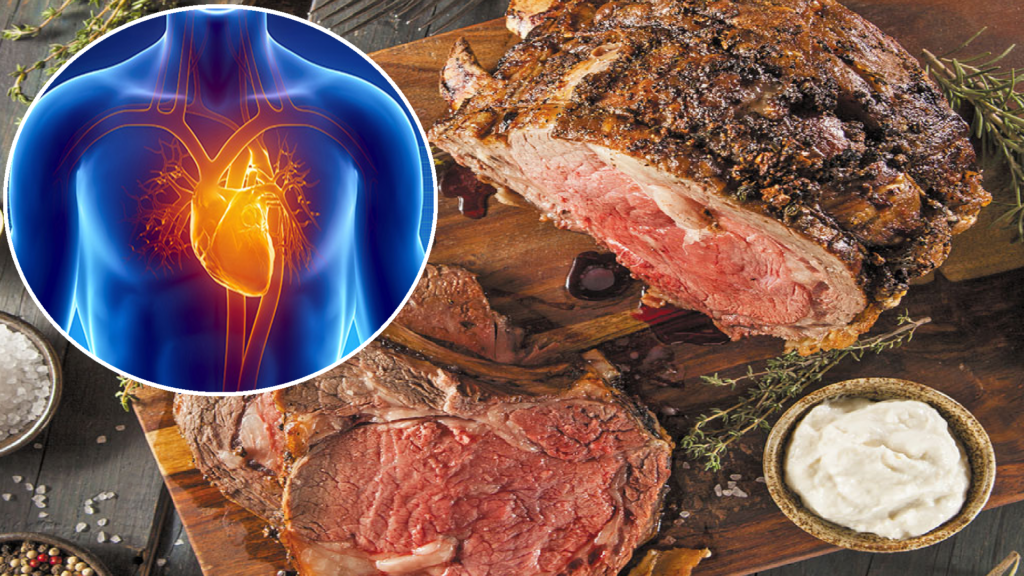Trimethylamine N-oxide (TMAO) is a dietary byproduct that is created by gut bacteria during digestion. The element is derived in part from nutrients that are bountiful in red meat.
High saturated fat levels in red meat have long been identified to contribute to heart disease, the head reason for death in the United States. An expanding number of researches have classified TMAO as another culprit.

The precise mechanisms by which TMAO may induce heart disease is complicated. Earlier research has shown that TMAO enhances cholesterol levels in the artery wall.
Researches also advise that the chemical interacts with platelets—blood cells that are accountable for normal clotting responses—to increase the risk for clot-related results such as stroke and heart attack.
To examine the effects of dietary protein on TMAO production, a research team directed by Dr. Stanley L. Hazen at the Cleveland Clinic enrolled 113 healthy men and women in a clinical trial. The participants were given three diets for thirty days in random order.
All meals were served for them, with 25% of calories from protein. The dietary proteins came from either white meat, red meat, or non-meat sources. The study was widely supported by NIH’s National Heart, Lung, and Blood Institute (NHLBI). Results were published on December 10, 2018, in European Heart Journal.
When on the red meat diet, the participants ate roughly the equivalent of two quarter-pound beef patties or 8 ounces of steak daily.
After thirty days on this diet, blood levels of TMAO were three times higher than when participants were on the diets based on either white meat or non-meat protein sources.
Half of the participants were also set on high-saturated fat versions of the three diets. The diets all had the same amounts of calories. The researchers discovered that saturated fat had no additional effect on TMAO levels.
Importantly, the TMAO gains were reversible. When the participants ended the red meat diet and consumed either the white meat or non-meat diet for another month, their TMAO levels reduced significantly.
“This study exposes for the first time what an important effect changing your diet has on levels of TMAO, which is increasingly associated with heart disease,” Hazen says.
“These conclusions reinforce current dietary recommendations that encourage all ages to follow a heart-healthy consumption plan that limits red meat,” says nutrition researcher Dr. Charlotte Pratt, the NHLBI project officer for the study.
“This means consuming a variety of foods, including more fruits, vegetables, whole grains, low-fat dairy foods, and plant-based protein sources such as peas and beans.”
Source: NIH
